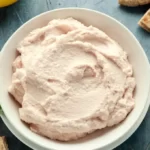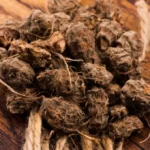
When you are pregnant, you need to be super careful about what you eat and how you live. This includes tasty treats like jalebi, a yummy Indian sweet. But wait, can you have jalebi while you’re pregnant? Let’s find out together!
Jalebi is loved by many people, but we need to be extra smart during pregnancy. In this article, we’ll learn if you can eat jalebi during pregnancy and what important things you should remember.
So, come along as we learn about jalebi and pregnancy!
Related: Tiramisu During Pregnancy: Is It Safe to Indulge?
What is Jalebi?
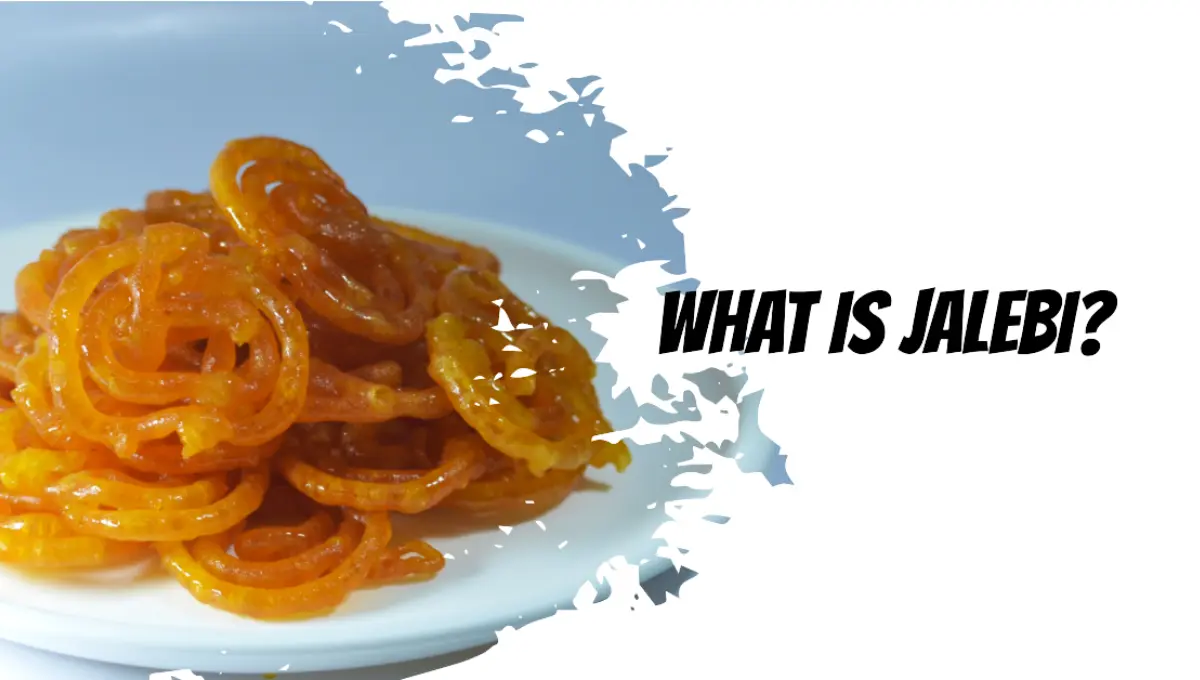
Jalebi is a popular sweet dish in the Indian subcontinent and other parts of South and Central Asia. It is made by deep-frying a batter made of maida flour and soaking it in sugar syrup. The batter is typically shaped into spirals before frying, resulting in a circular and orange-colored dessert. Jalebi is known for its sweet and syrupy taste. It is often enjoyed as a snack or dessert
The origins of jalebi can be traced back to Ariana, modern-day Afghanistan, but there is also a documented history of a similar Middle Eastern variety known as zalabiyeh. The word “jalebi” is derived from the Arabic word “zulabiya” or the Persian word “zolbiya.” Jalebi has a long history and is mentioned in ancient cookbooks and texts. While there is no clear consensus on whether it is safe to eat jalebi during pregnancy, it is generally recommended to consume it in moderation. If you have a craving for jalebi, you can have it in small amounts.
Related: Are Cherries Good for Pregnancy? Full Guide – 2023
What is the nutritional value of Jalebi?
The nutritional value of jalebi can vary slightly depending on the recipe and serving size. Here is an overview of the approximate nutritional composition of 1 jalebi:
- Calories: Jalebi contains around 44 calories per piece.
- Fat: Jalebi typically contains around 2.2 grams of fat per piece.
- Carbohydrates: Jalebi is relatively high in carbohydrates, with around 5.6 grams per piece.
- Protein: Jalebi has a low protein content, with approximately 0.2 grams per piece.
- Fiber: Jalebi is not a significant source of dietary fiber.
- Other nutrients: Jalebi is not a significant source of vitamins or minerals.
Related: Can I Safely Eat Burrata During Pregnancy?
How much sugar is in a serving of Jalebi?
Here are the approximate amounts of sugar in different serving sizes of jalebi:
- 1 piece of jalebi (approximately 20-30 grams): 0.35-0.83 grams of sugar.
- 100 grams of jalebi: 30 grams of sugar
- 1 jalebi (approximately 15-20 grams): 5.6 grams of carbohydrates, which includes 2.2 grams of fat and 0.2 grams of protein
Related: Fenugreek While Pregnant: Is it Safe or Risky?
Can you safely eat Jalebi during Pregnancy?
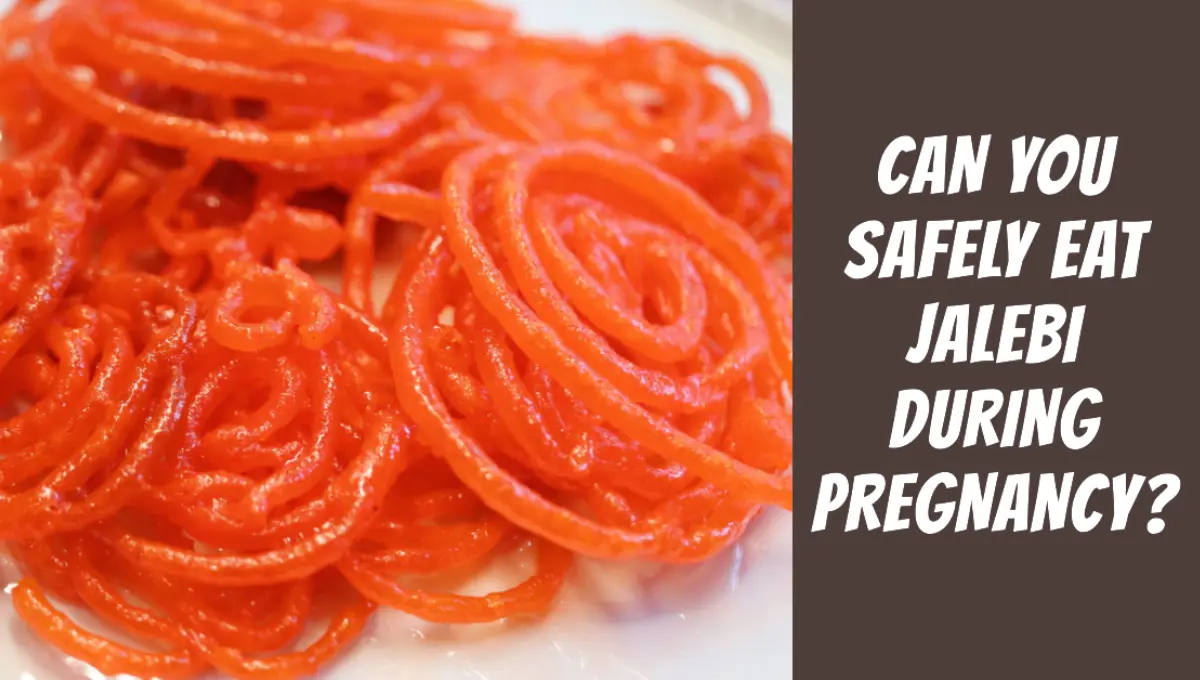
Indulging in the delightful treat of jalebi during pregnancy requires thoughtful consideration. Jalebi contains around 44 calories per piece. However, its preparation involving deep-frying in ghee and its primary composition of maida (refined flour) and sugar raise concerns about eating it during pregnancy. Rather than an outright dismissal, a moderate approach is suggested – savoring two pieces on occasional instances can be a balanced choice.
Considerations to Ponder:
Refined Flour (Maida):
The utilization of refined flour, known as maida, in this recipe poses a challenge to eat it during pregnancy. Consumption of maida-rich foods should be minimized, as it can lead to rapid spikes in blood sugar levels. This is particularly concerning for individuals with diabetes or heart conditions. Exploring the impact of maida consumption on your and baby’s well-being is recommended.
Deep-Fried Nature:
Jalebi’s appeal owes much to its deep-fried preparation. However, the health implications of consuming deep-fried foods should be recognized. Such foods can contribute to elevated fat levels due to increased oil absorption. Furthermore, reusing the same oil for frying can lead to the release of harmful compounds as the oil’s smoking point diminishes. Deep-fried and processed foods are known to trigger inflammation within the body, hindering the natural fat-burning process. Inflammation is linked to various health issues including heart problems, diabetes, and obesity. Prioritizing foods that counteract inflammation is pivotal for promoting overall health of yourself and your baby.
Sugar Concerns:
Sugar, often referred to as “white poison,” presents another aspect to consider. As a simple carbohydrate devoid of significant nutritional value, sugar consumption can lead to prolonged bodily inflammation. Spikes in blood sugar levels and suppression of fat-burning mechanisms are potential outcomes. Navigating towards a healthier lifestyle involves a gradual reduction of sugar intake. Unveiling hidden sugars in packaged foods and beverages and gradually eliminating them can contribute to this effort. Notably, popular soft drinks can contain as much as half a cup of sugar in a single can.
Related: Peppermint Tea In Pregnancy? Secrets Revealed!
What are the risks of eating Jalebi during Pregnancy?
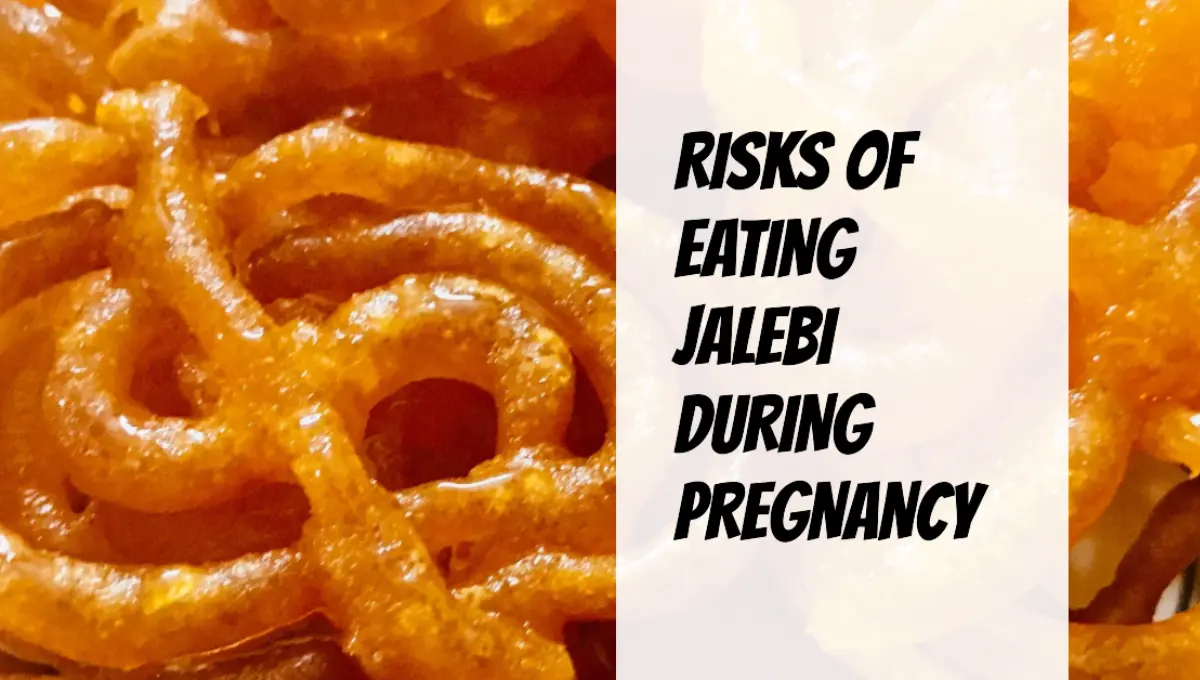
Jalebis are a type of sweet that is high in sugar and contains little to no fiber, which can lead to digestive problems like constipation. Additionally, unhealthy diets, including junk food, fried and spicy food, increase the chances of peptic or gastric ulcers.
Related: Can You Safely Eat California Rolls While Pregnant?
What are the alternatives to Jalebi for satisfying Pregnancy Cravings?
Pregnancy cravings are common and can be satisfied with healthy and nutritious alternatives. Here are some options to consider:
- Fresh fruits: Fruits like mangoes, bananas, apples, and oranges are a great source of vitamins and fiber. They can be eaten as is or blended into smoothies.
- Nuts and seeds: Almonds, walnuts, and chia seeds are a good source of protein and healthy fats. They can be eaten as a snack or added to salads and smoothies.
- Yogurt: Yogurt is a good source of calcium and protein. It can be eaten as is or mixed with fresh fruits and nuts.
- Dark chocolate: Dark chocolate is a good source of antioxidants and can satisfy sweet cravings. It should be consumed in moderation.
- Whole grains: Whole grains like oatmeal, quinoa, and brown rice are a good source of fiber and can be eaten as a meal or snack.
- Pickles: Pickles are low in calories and can satisfy salty cravings. They can be eaten as is or added to sandwiches and salads.
It is important to remember that indulging in cravings occasionally is okay as long as most of the time, a healthy and balanced diet is maintained.
Related: Can You Eat Guava During Pregnancy?
Conclusion
In conclusion, approaching the enjoyment of jalebi during pregnancy requires mindfulness of its nutritional implications. While it’s not advisable for regular consumption due to its deep-fried nature, refined flour content, and sugar, an occasional treat of two pieces can be a balanced compromise. Prioritizing a diet that minimizes refined ingredients, deep-fried foods, and excessive sugar aligns with promoting a healthier pregnancy journey.
Related: Can You Safely Eat Lobster During Pregnancy?
Frequently Asked Questions (FAQs)
Is it safe to eat jalebi during pregnancy?
While jalebi is generally safe to eat during pregnancy, it is important to consume it in moderation. Jalebi is high in sugar and calories, so it is best to enjoy it as an occasional treat rather than a regular part of your diet.
Can eating jalebi during pregnancy harm the baby?
Eating jalebi during pregnancy in moderation is unlikely to harm the baby. However, it is important to remember that jalebi is a sugary and fried food, which may not provide the necessary nutrients for a healthy pregnancy. It is always recommended to focus on a balanced and nutritious diet during pregnancy.
Are there any specific precautions to take when eating jalebi during pregnancy?
When consuming jalebi during pregnancy, it is important to ensure that it is prepared in a hygienic environment to avoid any risk of foodborne illnesses. Additionally, if you have gestational diabetes or any other specific dietary restrictions, it is advisable to consult with your healthcare provider before consuming jalebi.
Can eating jalebi cause gestational diabetes?
Eating jalebi alone may not directly cause gestational diabetes. However, consuming excessive amounts of sugary foods like jalebi can contribute to an increased risk of developing gestational diabetes. It is important to maintain a balanced diet and monitor your sugar intake during pregnancy.
Are there any safer alternatives to jalebi during pregnancy?
If you are craving something sweet during pregnancy, there are healthier alternatives to jalebi that you can consider. Opt for fresh fruits, yogurt, or homemade desserts made with natural sweeteners like honey or dates. These options provide essential nutrients and are generally safer choices during pregnancy.









